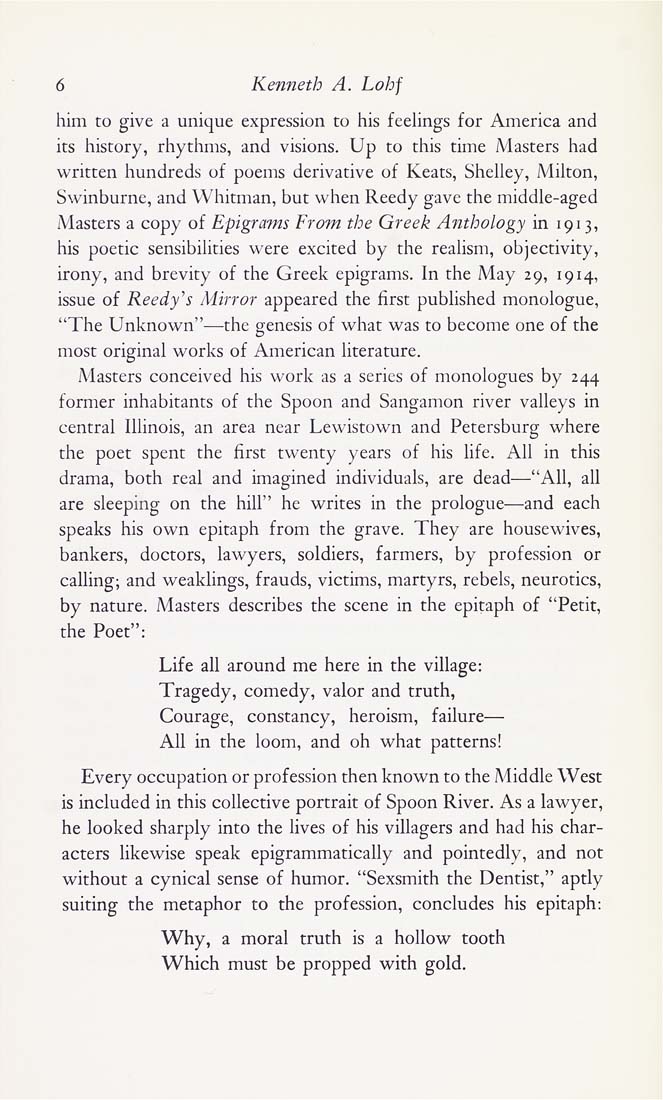Columbia Library columns (v.14(1964Nov-1965May))
(New York : Friends of the Columbia Libraries. )
|
||
|
|
|
|
| v.14,no.2(1965:Feb): Page 6 |

6 Kenneth A. Lohf him to give a unique expression to his feelings for America and its history, rhythms, and visions. Up to this time Masters had written hundreds of poems derivative of Keats, Shelley, Milton, Swinburne, and Whitman, but when Reedy gave the middle-aged Masters a copy of Epigrams From the Greek Anthology in 191 3, his poetic sensibilities were excited by the realism, objectivity, irony, and brevity of the Greek epigrams. In the May 29, 1914, issue of Reedy's Mirror appeared the first published monologue, "The Unknown"—the genesis of what was to become one of the most original works of American literature. Masters conceived his work as a series of monologues by 244 former inhabitants of the Spoon and Sangamon river valleys in central Illinois, an area near Lewistown and Petersburg where the poet spent the first twenty years of his life. All in this drama, both real and imagined individuals, are dead—"All, all are sleeping on the hill" he writes in the prologue—and each speaks his own epitaph from the grave. They are housewives, bankers, doctors, lawyers, soldiers, farmers, by profession or calling; and weaklings, frauds, victims, martyrs, rebels, neurotics, by nature. Masters describes the scene in the epitaph of "Petit, the Poet": Life all around me here in the village: Tragedy, comedy, valor and truth, Courage, constancy, heroism, failure— All in the loom, and oh what patterns! Every occupation or profession then known to the Middle West is included in this collective portrait of Spoon River. As a lawyer, he looked sharply into the lives of his villagers and had his char¬ acters likewise speak epigrammatically and pointedly, and not without a cynical sense of humor. "Sexsmith the Dentist," aptly suiting the metaphor to the profession, concludes his epitaph: Why, a moral truth is a hollow tooth Which must be propped with gold. |
| v.14,no.2(1965:Feb): Page 6 |







